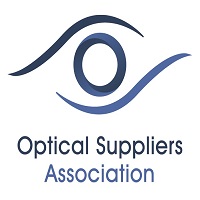Continuing Professional Development
The provision of eyecare services in the UK is strictly regulated by law. From entry into the profession by degree and professional certification eyecare specialists using the protected title of Optometrist or Ophthalmic Optician are registered with the General Optical Council, a government regulatory body.
For retention on the lists they must provide evidence of continuous education and training as well as adherence to the expected codes of practice.
The College of Optometrists, the examining body for the UK also provides a Code of Ethics which is accepted as one of the peer views within the profession. The government makes a financial contribution to each professional working within the General Ophthalmic Services within the community to offset the significant costs of individual training.
Very much the same process of continuous training also occurs within the dispensing optics profession although the cost is borne individually by each professional.
Increased requirements are put upon those providing and fitting contact lenses.
Most optometrists are contracted by your local Primary Care Trust (PCT) AND IN THE FUTURE COMBINED WITHIN Integrated Care Networks (ICS) under National and Local Guidelines to provide a “best practice” standard of care within the NHS provision.
As a safety net there are disciplinary and fitness to practice procedures for reprimanding poor quality work both within the GOC and the College. Optics in the UK was one of the first professions to implement a robust plan to ensure patients receive a safe standard of treatment and advice.
If you believe you have a complaint after receiving treatment or products there a number of routes open to you for redress.
Complaints initiated from over 17.5 million sight tests a year total a tiny fraction, but are none the less treated seriously. Normally problems arise from a misunderstanding or poor communications or perhaps the poor handling of a product complaint. In almost every case these are solved by going back to the original provider or senior manager. If this proves too difficult the profession provides an independent ombudsman service to mediate on your behalf with a high rate of success. It is called the Optical Consumer Complaints Service (OCCS) and you will find the contact details in our useful links page.
If there are in their opinion more serious professional misconduct issues the OCCS will refer these to the General Optical Council. The same is true of any complaints received by the College of Optometrists. You can report such serious claims directly to the GOC. We would repeat that the normal response by a professional individual or company is to redress the situation as soon as possible so this should be your first port of call.



















